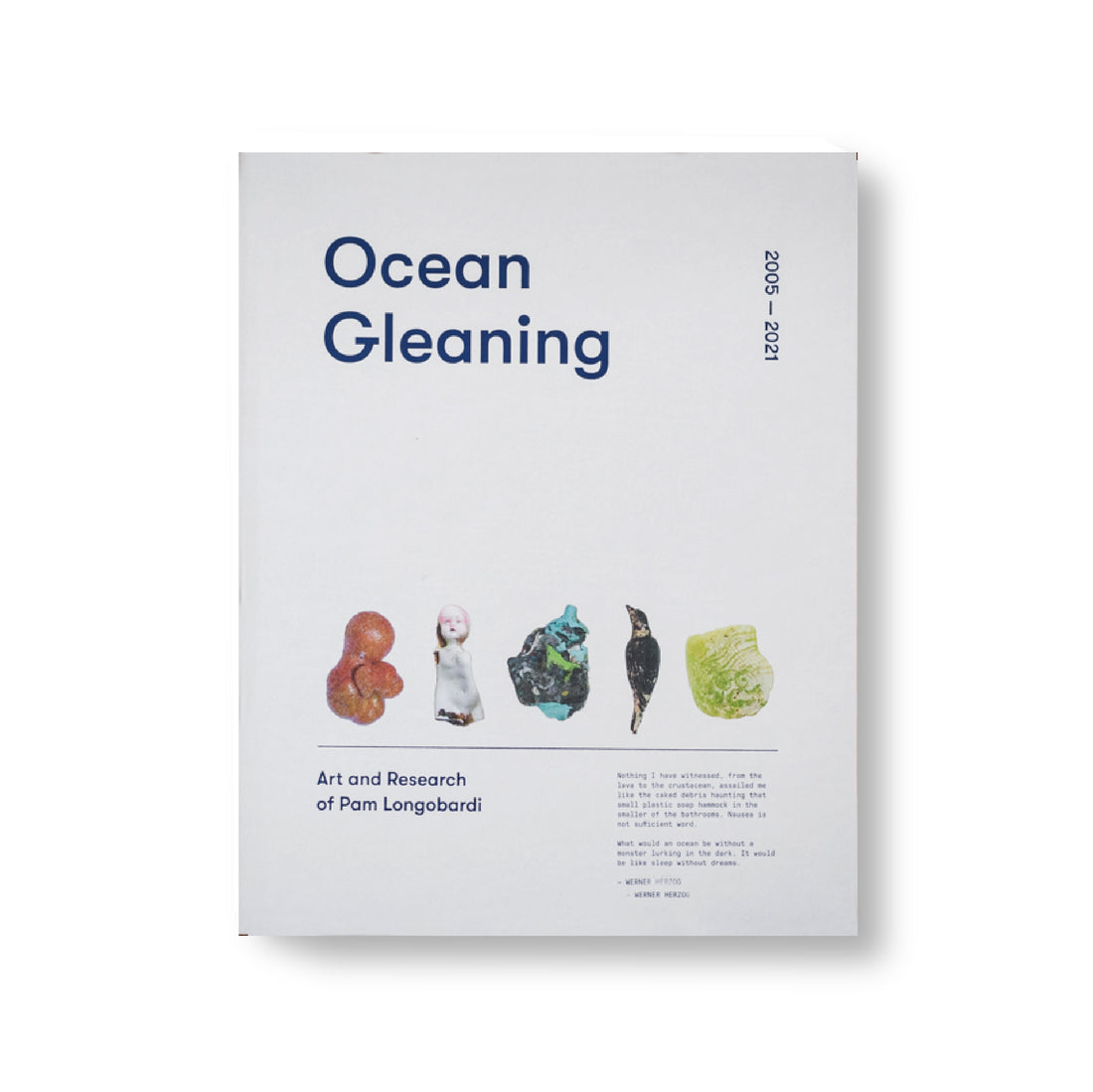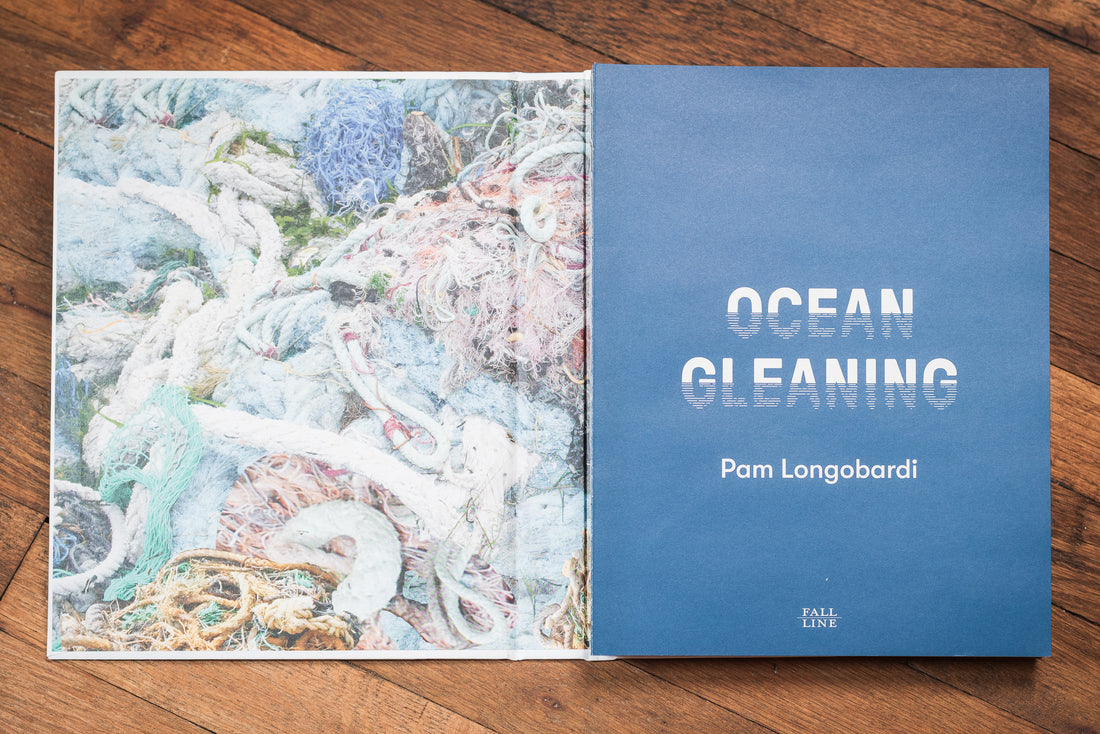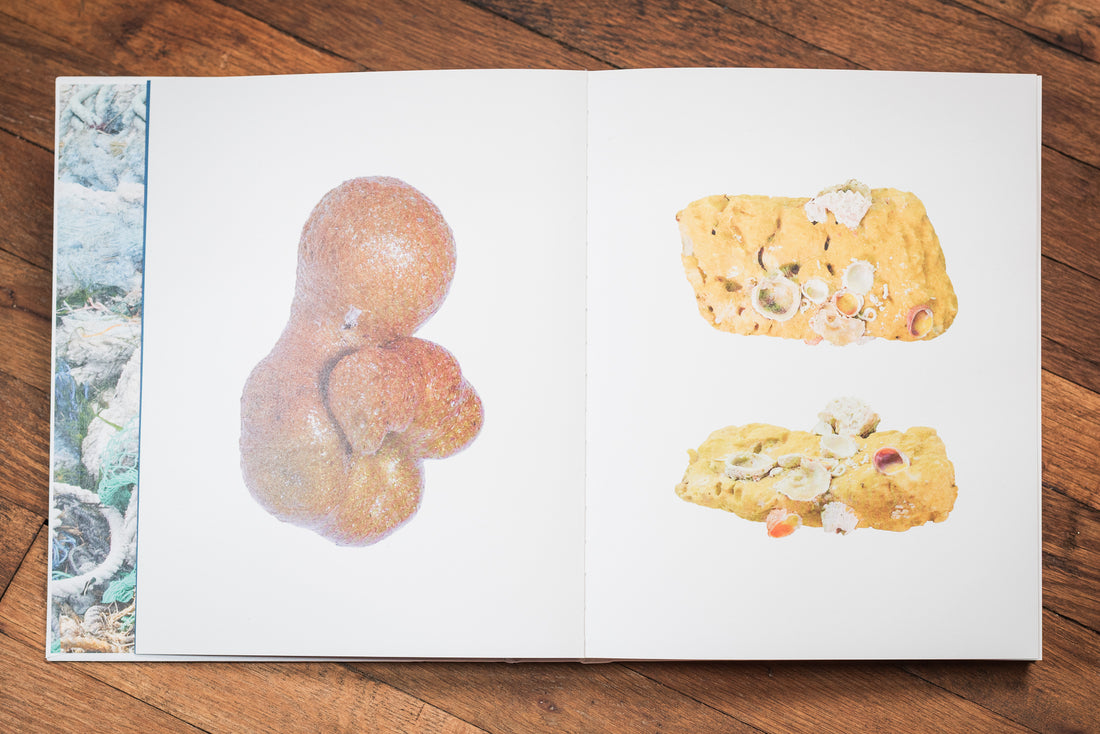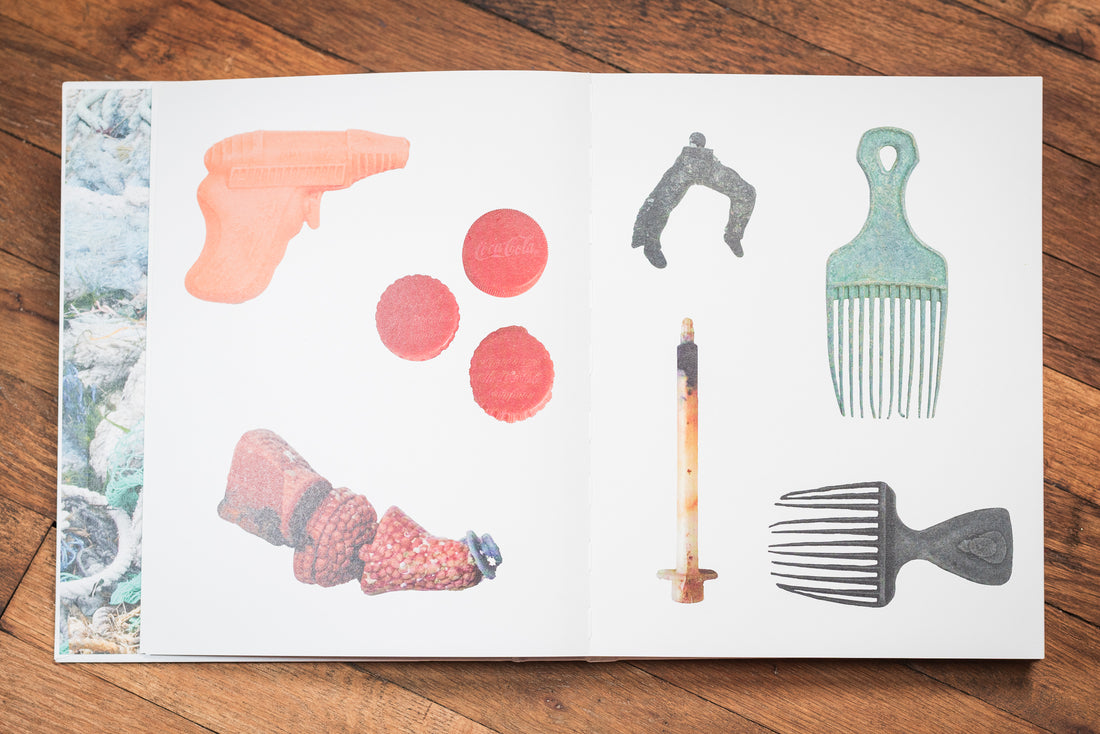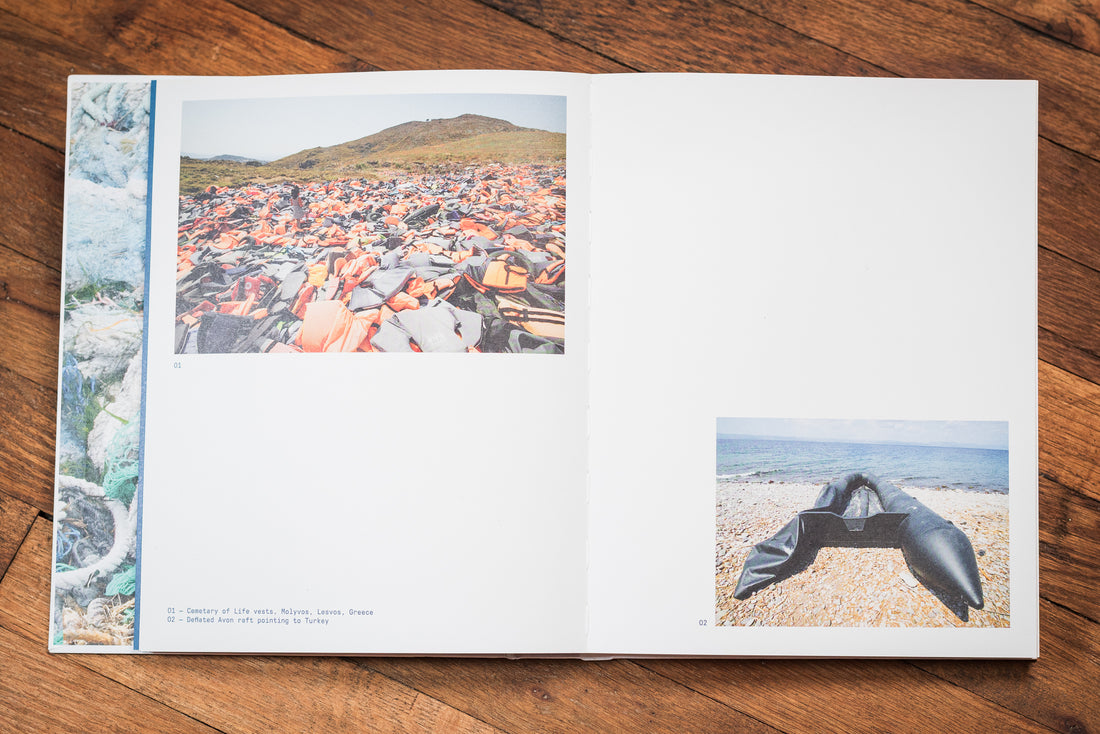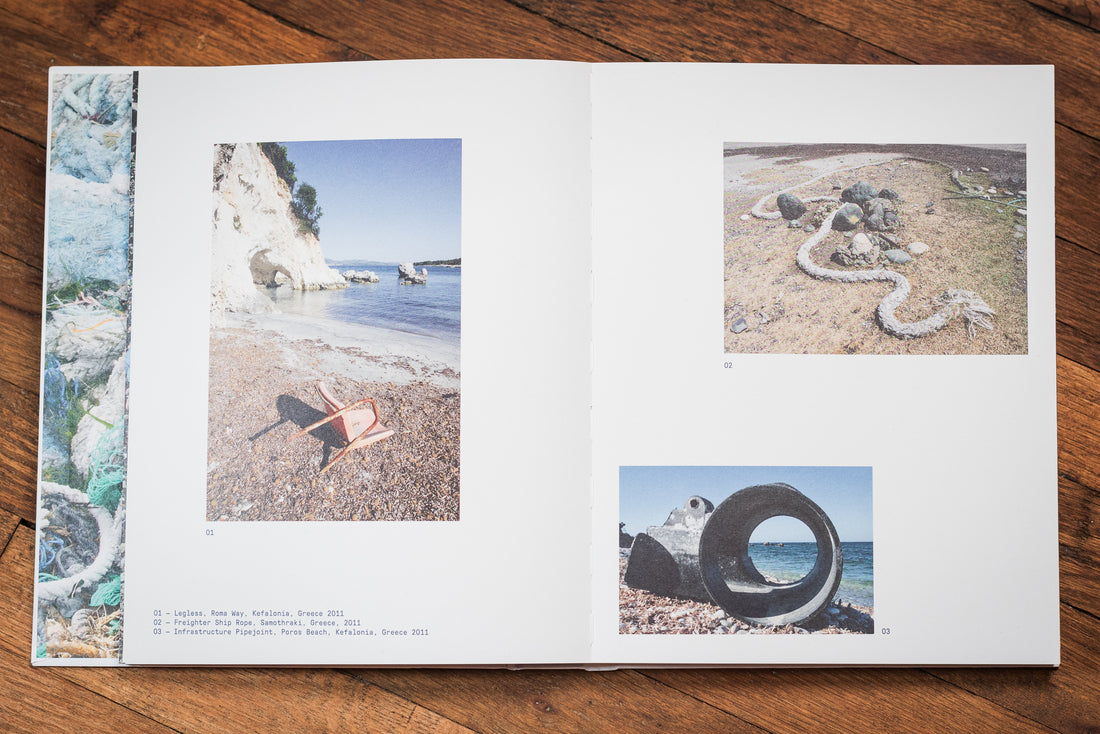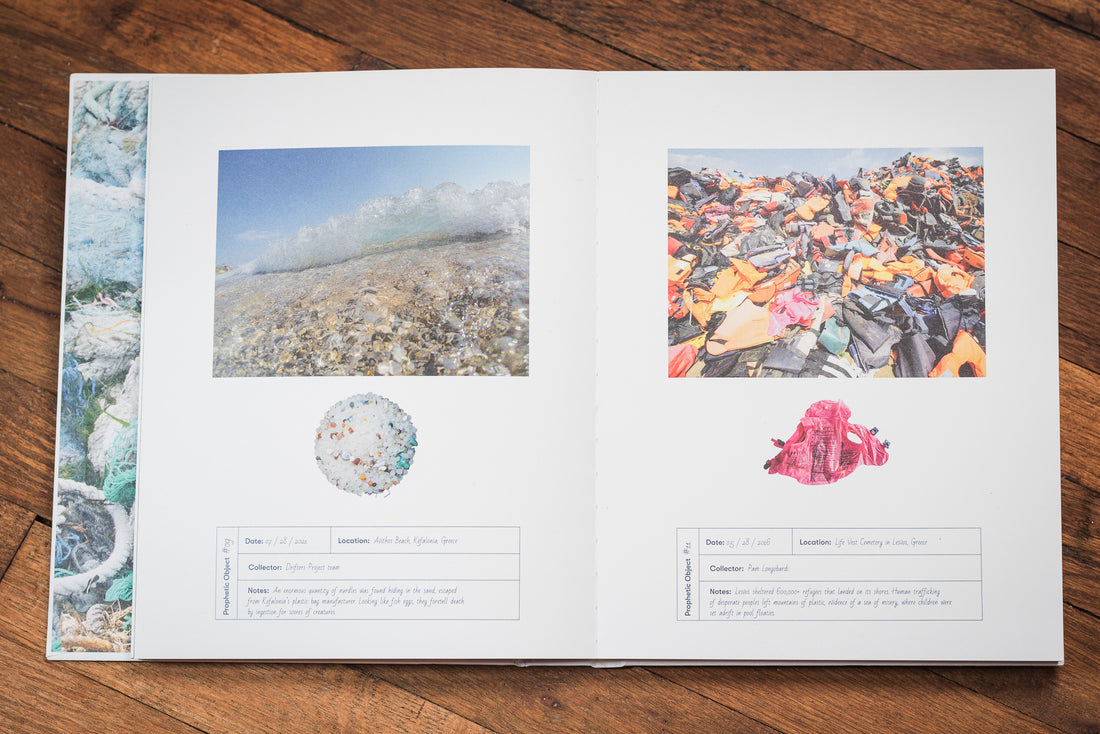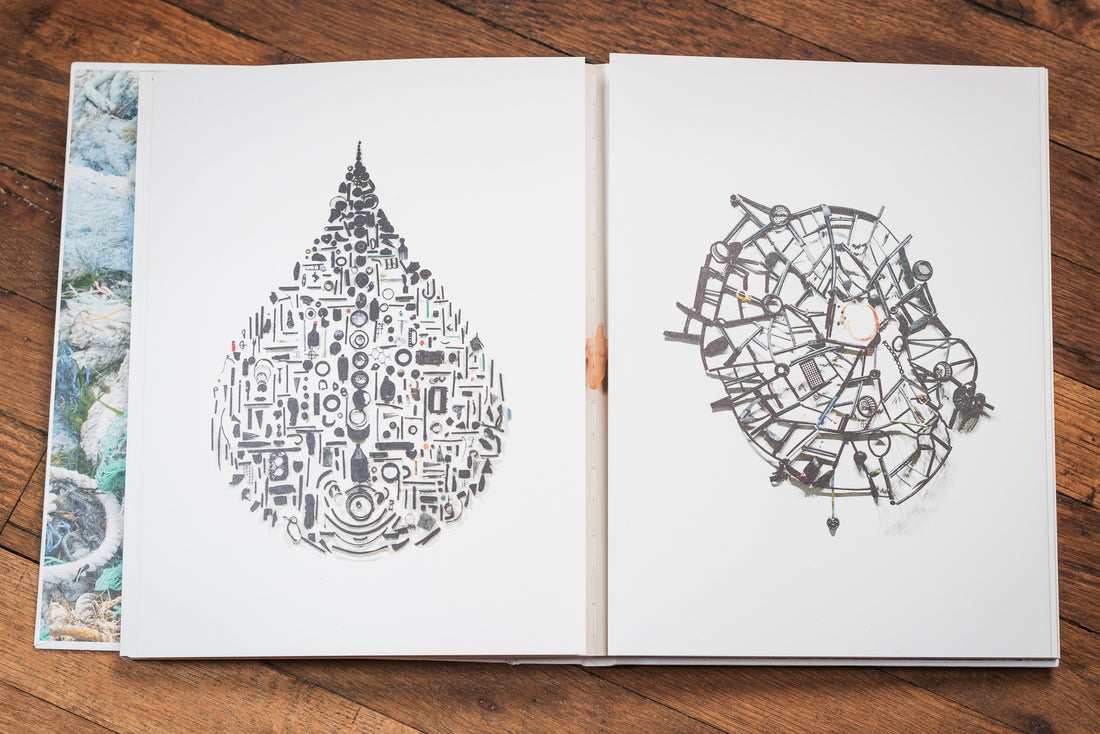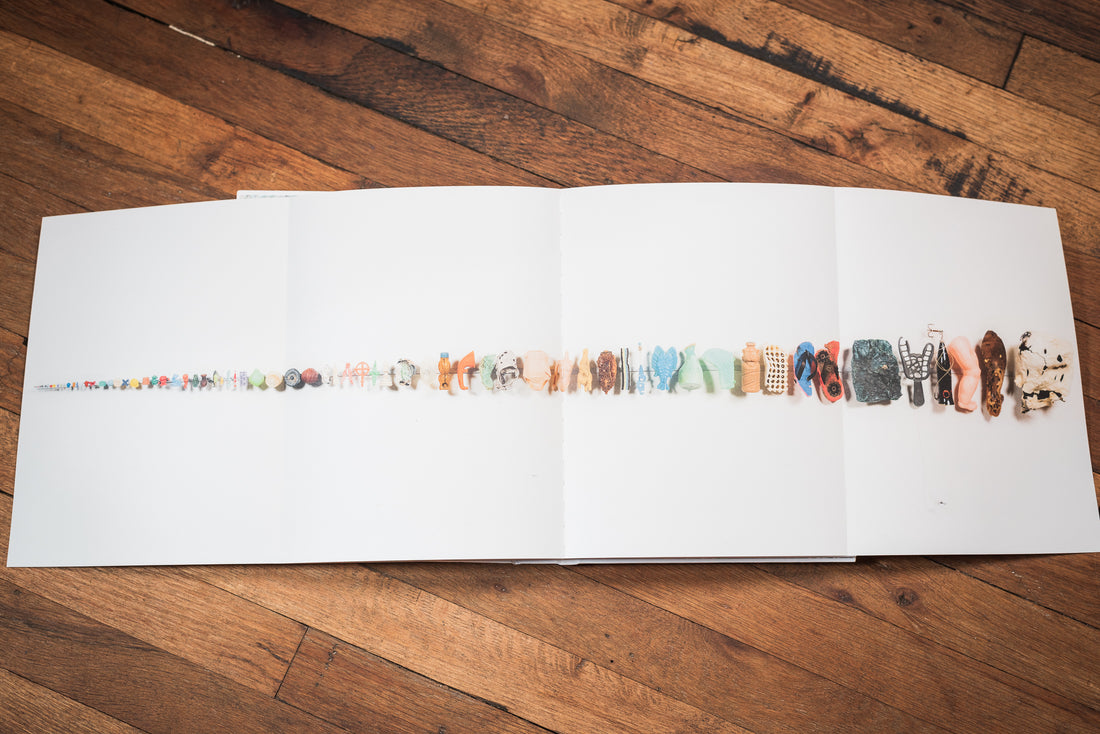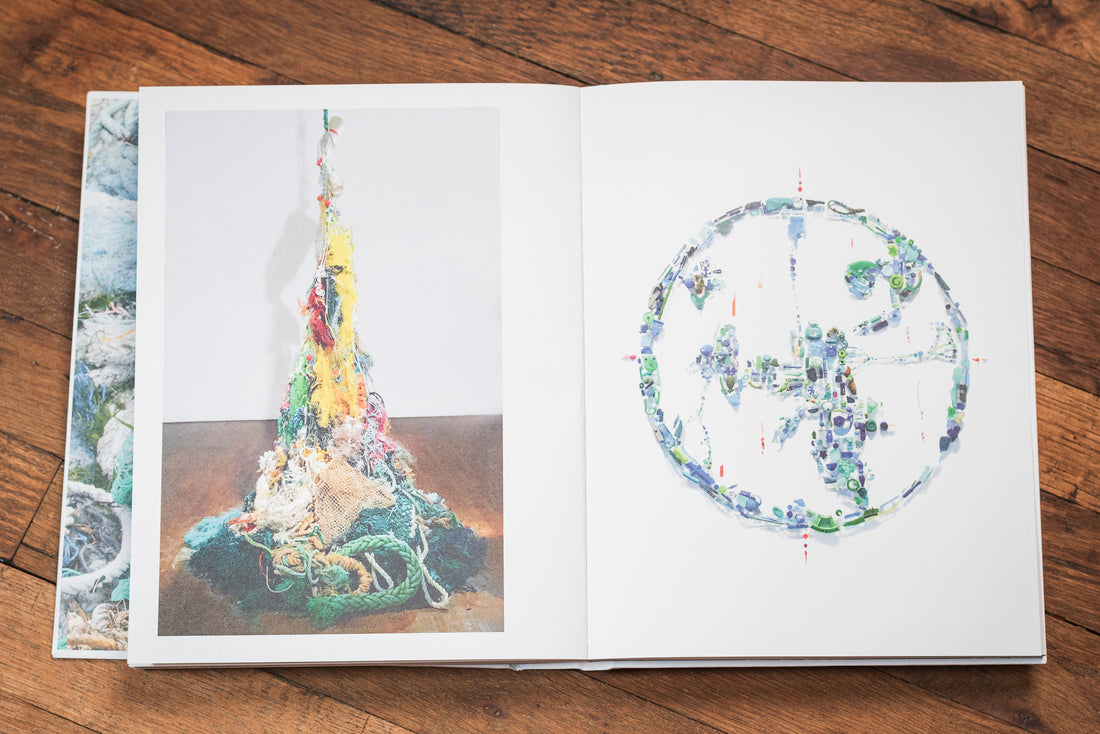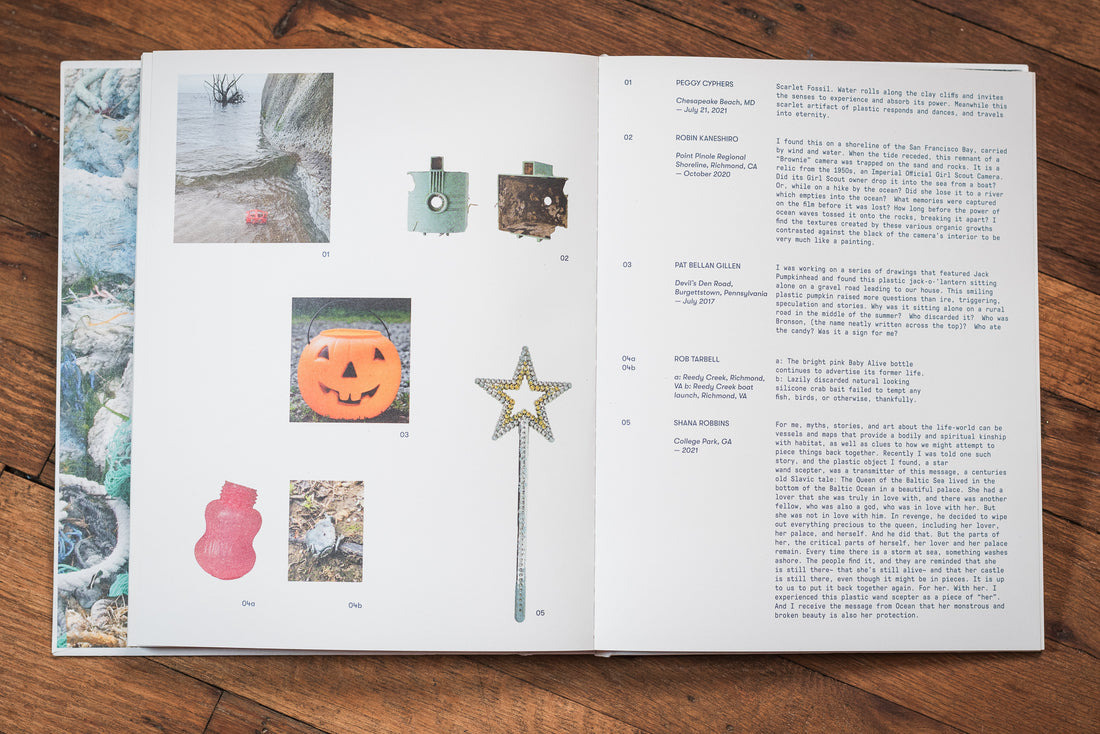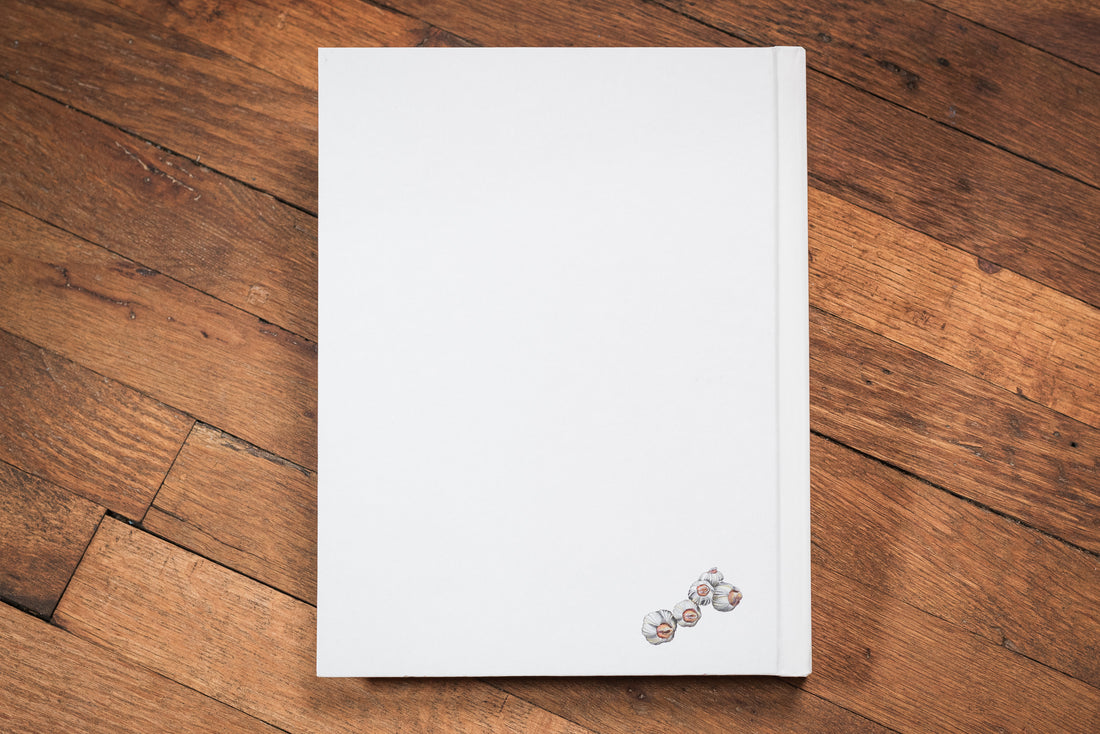Ocean Gleaning
by Pam Longobardi
Pam Longobardi’s powerful art is a passionate call to action to transform our wasteful ways. She works toward forging reconnections with humans and the natural world.
- William Boling
Ocean Gleaning proposes a collaboration between art, science, activism and like-minded groups that begins with the assumption that the ocean is a conscious entity that, in many different ways, from rising levels and temperatures to declining fish stocks to coral bleaching and finally to the deformed material plastic objects that float the world round, is attempting to communicate its declining state of being. Pam Longobardi has channeled her lifelong love of the ocean into an artistic practice that transforms the mountains of plastic debris that wash up on beaches around the world. For more than 15 years, Longobardi has utilized found ocean plastics as her primary source material, arranging hundreds of plastic pieces into meticulous wall-mounted artworks or turning them into monumental floor-based sculptures. She refers to this body of work as the “Drifters Project.” Working collaboratively with communities around the globe, Longobardi has cleaned beaches from Hawaii to Greece to Panama, and dozens of locations in between, removing tens of thousands of pounds of plastic from the environment and converting them into thought-provoking works of art that shed an unflinching light on the effects of global consumption on the natural world.
Artist Biography
Pam Longobardi’s parents, an ocean lifeguard and the Delaware state diving champion, connected her from an early age to the water. She moved to Atlanta in 1970 and saw her neighborhood pond drained to build the high school she attended. Since then, she lived for varying time periods in Wyoming, Montana, California, and Tennessee, and worked as a firefighter and tree planter, a scientific illustrator and an aerial mapmaker, a collaborative printer and a color mixer. Her artwork involves painting, photography and installation to address the psychological relationship of humans to the natural world. She has exhibited across the US and in Greece, Monaco, Germany, Finland, Slovakia, China, Japan, Italy, Spain, Belgium, Costa Rica and Poland. She currently lives and works in Atlanta as Regents’ Professor and Distinguished Professor of Art at Georgia State University and drifts with the ongoing Drifters Project, following the world ocean currents. For more information, visit www.driftersproject.net.
Ocean Gleaning by Pam Longobardi
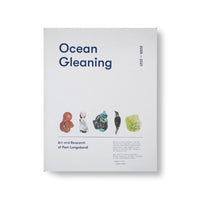
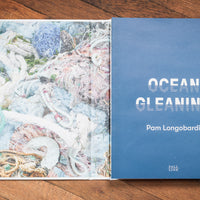
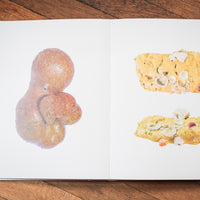
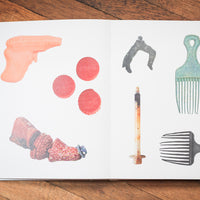
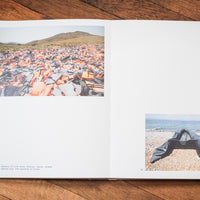
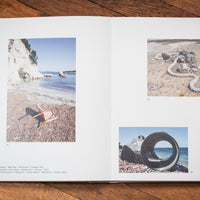
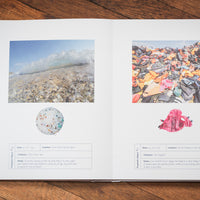
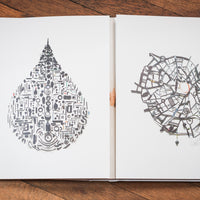
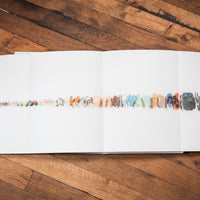
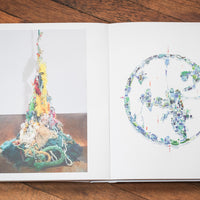
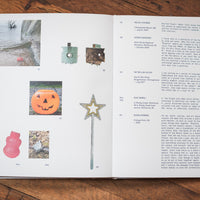

Ocean Gleaning by Pam Longobardi
Ocean Gleaning proposes a collaboration between art, science, activism and like-minded groups that begins with the assumption that the ocean is a conscious entity that, in many different ways, from rising levels and temperatures to declining fish stocks to coral bleaching and finally to the deformed material plastic objects that float the world round, is attempting to communicate its declining state of being. Pam Longobardi has channeled her lifelong love of the ocean into an artistic practice that transforms the mountains of plastic debris that wash up on beaches around the world. For more than 15 years, Longobardi has utilized found ocean plastics as her primary source material, arranging hundreds of plastic pieces into wall-mounted artworks or floor-based sculptures. Working collaboratively with communities around the globe, Longobardi has cleaned beaches from Hawaii to Greece to Panama, and dozens of locations in between, removing tens of thousands of pounds of plastic from the environment and converting them into thought-provoking works of art that shed an unflinching light on the effects of global consumption on the natural world.



